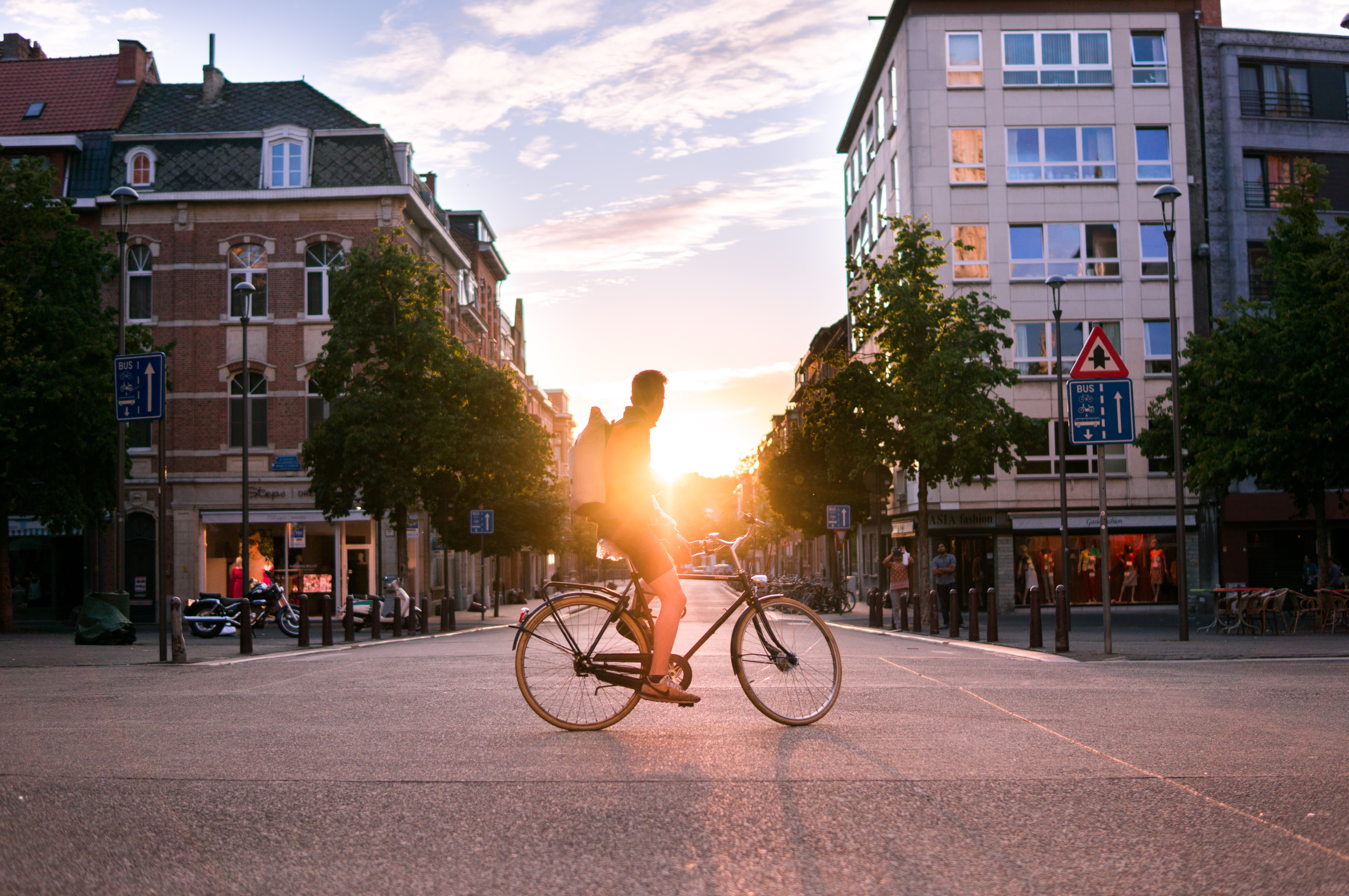A few nights ago, I had an epiphany. It was something I had felt growing over the last couple of months. A feeling that was lingering below the surface but so far was hard for me to pin down. A cosy sensation of camaraderie and care.
It was about mobility devices.
I had this feeling with my bike, the electric cars I rent, and night trains I use. And I now understand why I don’t have it with scooters or airplanes.
Bear with me – this is a long one.
With my bike, it’s the feeling on a rainy night when I come home from a shopping trip and make it without getting completely wet. The feeling when I crashed with this bike and broke a rib, but also when I transported the most impractical IKEA furniture with it, and rode it dozens of kilometres out of the city to a climate strike and back.
Why I care so much about it is because it needs so little care.
A service here and there once or twice a year, but the rest of the time it’s just there for me. Every day. It’s a little like a parent or a guardian. Just there for you. Carries you around. Makes you feel you’re more capable than you think. And then shows you your limits. A bike is unique in the way that you mostly power it with your own muscles and this makes it a symbiotic companion, unlike any other mobility mode.
Many great things have been said about bikes. Recently, Horace dedicated a long video to the love for his bike. What a relief, I’m not the only one. In my bubble of mobility enthusiasts, there’s a growing sense of the role of vehicles in fighting the climate crisis. People feel encouraged by the insight that we need less cars but rather new smaller modes of transportation so the next billion people can move. But I think apart from this rationale, there’s another factor at play: the heart. And it even applies to cars.

With cars, it’s well documented that people fall in love with their car over time. They would refer to it with pet names, have certain customisations done with it, make it like their home. They spend decades together, go through thick and thin, travel long distances or speed to an urgent event.
This would change when you switch from owning a car to renting or carpooling, right? That’s at least what I expected to happen. But when I started using electric car sharing, I got to know a different shade of this feeling of belonging, it’s a little like a tribe, I’d say. From the outside, you think it’s cumbersome, you have to look for charging stations and they’re not all the same, and every time there’s a different provider to register with, and you’d be stressed by the uncertainty of whether you’d get enough juice or not.
But once you start ditching ICE cars for good and go electric all the way, your perspective changes – even if it’s shared vehicles. I use ELOOP that only runs Teslas and what I found is that after my wife and I overcame our initial skepticism and the hurdles of charging, we were in a different mood. We went to places we would never have seen without charging. Superchargers are sometimes beautiful places, with small pools of water, trees, and shade. It’s a calming experience. Even if I’m charging in an out-of-town industrial district that feels kind of remote, I’m still in a relaxed place. And I think I know why.
I like to care for this car.
It tells me when it needs to charge, shows me the way, all I have to do is follow the route, take a break, and continue. Charging can’t be easier, a simple plug in and out. No registration whatsoever.
And here it gets a little crazy because I had this realisation that I should probably talk to a therapist about: the reason I enjoy taking care of the needs of this vehicle is our mutual safeguarding. This thing keeps me warm, takes me through rough weather and brings me home every time. So much for the childhood memories. The metaphor still holds in reverse though, because caring for a device is a bit like caring for an elderly family member. I get up charging in the middle of the night, picking up the car early before dawn because the battery is fully loaded. I patiently wait for the car to get ready, and I don’t mind if takes a little longer on that day.
The way this user experience is designed could not be any different to the quick-and-dirty gas station stops I made before. The charging experience is an emotional connection that kind of opens you up to the character of your EV.
And one of these traits, at least with Teslas, is frugality. The car won’t ask you for a full charge every time. It’s not like it’s only satisfied with a 100 % loaded battery and stretches your patience for the maximum time. In fact, it’s the opposite. Teslas will only ask for the charge it needs to get to your destination. Plus a small buffer. But not more, and it will take you to your eventual place with just that amount of energy and time you spend at the Supercharger. This makes me grateful in return. I don’t feel exploited, I feel respected.
Charging became a positive very quickly.
Finally, trains – or more specifically, night trains. See, I enjoyed trains ever since. My dad and I like to make the joke that when going by train we feel we accomplish so much, just because there was so much landscape going by. Still today when on business trips, regardless of how much work I get done, I feel I did a lot. But this is a very rational thing and my connections to trains remained fairly flat over twenty years.
This changed with overnight trains. I started taking them in November 2019, vowing I would never fly for business trips again (a promise I broke once since then). And going to Munich, Frankfurt, Hamburg and other cities on a NightJet, I noticed I developed an emotional connection to these things unlike with regular trains and unlike with hotel rooms. Certainly not with hotel rooms.
I guess it’s the fact that I sleep in these cabins. It’s something I don’t do in any other travel mode. It’s a big trust issue to be able to close your eyes and speed through the dark of the night. But it’s also a great revelation waking up in a totally different city. Obviously, for me the climate-friendliness of trains is a big emotional plus – I can literally sink my head into the pillow knowing that I’m not doing any harm taking an 8- or 12-hour ride and can peacefully fall asleep.
The other day I just had to write to Karin about how I feel. She is in charge of all marketing activities of Austrian railway company ÖBB. I let her know that my emotional connection to the brand changed over the last three years and my euphoria intensified when word spread about the next generation of night trains. For me it was similar to learning about a new Tesla. It’s not about the features – it’s about my willingness to go great lengths to be able to feel this feeling of companionship.
See, and this is why I value electric car sharing. I am willing to care for their needs and by adapting my route I am able to explore new places I wouldn’t have gone otherwise. Charging became a somewhat intimate experience for me, as crazy as it sounds. This is not the case with shared scooters, because I literally don’t care for them. Their batteries are replaced overnight, and they’re much more functional than emotional to me. Maybe that’s a reason people leave them in the street uncared for.
So, I ask myself, what other mode of transport can create such feelings – air taxis because unlike big planes they are individual modes and can create intimate experiences? Autonomous cars because I can sleep in them?
I guess I’ll have to find out if it can grow into something serious.

